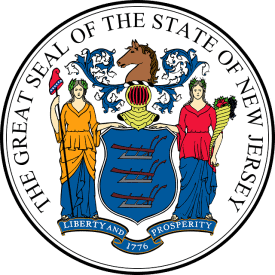Business Owners and the New Jersey Franchise Practices Act 
Business owners do not usually consider that a deal with another company may fall under the New Jersey Franchise Practices Act (NJFPA), because the relationship does not have a written agreement clearly defining the relationship as such. Many assume that as they are not in the retail “Quicky Mart,” fast-food industry, or car dealerships, that franchise law does not apply to them. However, New Jersey’s franchise law is broader than you might expect, and therefore a franchise relationship may be just what your business has with another business.
Why a Franchise Business Relationship Matters
Why is this distinction so important? If the business relationship is actually a franchise, then you will have certain remedies, or in another word, safeguards, not available in common contract disputes. Such remedies could include a recovery of your litigation costs and attorneys fees, as well as termination rights. These remedies allow you to battle with larger entities with deep pockets to pay litigation costs.
An Example of NJFPA Applicability
If you are a motor vehicle distributor, then there is less doubt about the NJFPA’s applicability (as well as the federal Automobile Dealers’ Day in Court Act, 15 U.S.C.S. §§ 1221-1225) to your relationship to the manufacturer. However, the NJPA provides protection to other in-State businesses, as well. For instance, New Jersey recognizes that in distributor – manufacturer relationships there may be a great disparity in bargaining power, and for this reason, the NJFPA was enacted to level the playing field. Therefore, do not assume that because you do not have a traditional distributor – manufacturer dynamic, that your relationship is not a franchise recognized by the NJFPA.
The Important Elements in Identifying your Business Relationship
The key element being, if a company grants you a license or authorizes you, a reseller, the right to promote yourself as an official service source of that company’s goods, then your relationship may be a franchise under New Jersey law.
In any relationship where your business relies upon a party to provide goods or services and the ability to market that party’s brand, you should be alert to whether the NJFPA applies to the agreement.
Note, the NJFPA requires that the following threshold be satisfied to establish a franchise relationship:
- the performance of [a written contract] contemplates or requires the franchisee to establish or maintain a place of business within the State of New Jersey,
- where gross sales of products or services between the franchisor and franchisee covered by such franchise shall have exceeded $35,000.00 for the 12 months next preceding the institution of suit pursuant to this act [meaning the year running-up to the time of the law suit], and
- where more than 20% of the franchisee’s gross sales are intended to be or are derived from such franchise.
(N.J.S.A. 56:10-4) [This threshold, however, is not inclusive of critical definitions key to establishing whether a franchise exists, but it is a reasonable starting point.]
In the event you, the franchisee, have been harmed by the breach of an agreement with a franchisor, or your relationship was terminated on less than sixty days’ notice, or otherwise in violation of your written agreement, then you may have remedies not available to other commercial disputes, such as a recovery of your attorneys fees and litigation costs. Determining whether your relationship with a goods or service provider is actually a franchise is a critical step in determining your options to resolve the dispute both speedily and favorably to your business.
Need a Franchise Lawyer in New Jersey? Click HERE
BE ADVISED that these comments are not legal opinions and are not to be relied upon as legal advice. If you need legal advice, please contact me to discuss the specifics of your dispute and agreement or contact your county bar association and ask for a referral.
© Kilcommons Law, P.C. 2014
